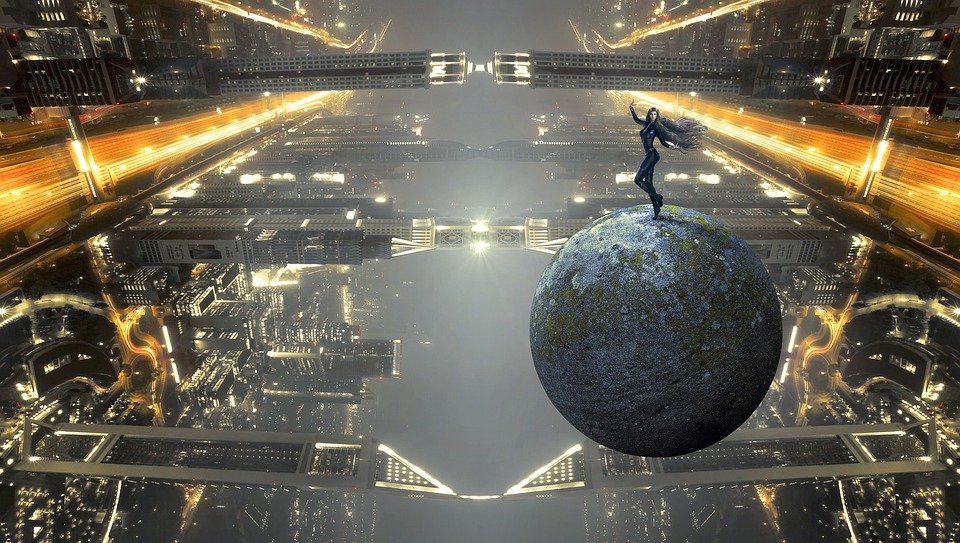Beyond Belief: Exploring the Beauty and Complexity of a Godless Universe
Introduction
The concept of a godless universe, devoid of any divine entity or supernatural force, has been a topic of intense discussion and debate for centuries. In recent times, with advancements in science and a growing secular movement, more people are exploring the beauty and complexity of a world free from the constraints of religious dogma. This article delves into the wonders of a godless universe, highlighting the awe-inspiring aspects that emerge when we view the cosmos through a secular lens.
The Beauty of Natural Laws
One of the most captivating aspects of a godless universe is the beauty inherent in natural laws. From the intricate patterns of a snowflake to the expansive formations of galaxies, the universe operates according to consistent and elegant principles. Science allows us to uncover these laws, revealing the underlying order and harmony that governs the cosmos.
Without the need to attribute these phenomena to a higher power, we can appreciate the elegance of natural processes. The intricate dance of particles in quantum mechanics, the delicate balance of ecosystems, and the emergence of life through evolution all become sources of wonder and admiration. The absence of a god does not diminish the splendor of these phenomena; rather, it allows us to appreciate them for what they are, without the need for supernatural explanations.
The Complexity of Emergent Phenomena
In a godless universe, the complexity and diversity of life take on an added layer of fascination. Through evolutionary processes, life has emerged in countless forms, each adapted to its unique environment. From the smallest microorganisms to the complexity of the human brain, the natural world showcases the remarkable capabilities of emergent phenomena.
Understanding the complexity of life without invoking a divine creator can be both humbling and intellectually stimulating. The intricate interplay of genetics, environment, and natural selection has shaped the diversity of species on Earth, highlighting the power of natural processes to generate and sustain life. Exploring the intricacies of biology, neuroscience, and other scientific fields allows us to appreciate the incredible complexity of a godless universe.
The Wonder of Cosmic Evolution
Another aspect of a godless universe that inspires awe is the grandeur of cosmic evolution. Through the lens of astrophysics and cosmology, we can trace the history of the universe from its origins to the present day. The formation of stars, the birth and death of galaxies, and the existence of black holes all provide glimpses into the vastness and age of our universe.
The absence of a divine creator does not diminish the beauty and wonder of cosmic evolution. In fact, it magnifies it. The realization that we are part of an unfolding cosmic story, where matter and energy transform and evolve over billions of years, adds depth and significance to our existence. We become connected to the cosmos through our shared origins and shared destiny, fostering a sense of awe and belonging.
FAQs
Here are some frequently asked questions about a godless universe:
1. Does a godless universe imply meaninglessness?
No, a godless universe does not imply meaninglessness. Meaning and purpose can be found in various aspects of life, such as relationships, personal growth, and contributing to the well-being of others. The absence of a god simply shifts the source of meaning from a divine authority to human experiences and aspirations.
2. Can science explain everything in a godless universe?
While science provides a powerful framework for understanding the natural world, there may still be aspects of existence that remain beyond its current reach. However, the fact that science continues to expand our knowledge and uncover new mysteries is a testament to its effectiveness in exploring the complexities of a godless universe.
3. How does a godless universe impact morality?
Morality can be understood through various ethical frameworks that do not necessitate the existence of a divine being. Concepts such as empathy, fairness, and compassion can be grounded in human values and social cooperation. In a godless universe, moral principles can be derived from a consideration of the well-being and flourishing of sentient beings.
4. Can spirituality exist in a godless universe?
Absolutely. Spirituality can be experienced in a godless universe through a connection with oneself, others, and the wider world. Practices such as meditation, mindfulness, and awe-inspiring experiences can foster a sense of transcendence and connection without relying on religious beliefs.
5. Does a godless universe diminish the importance of human life?
No, a godless universe does not diminish the importance of human life. In fact, it can enhance our appreciation for the preciousness and uniqueness of our existence. Understanding that human life is the result of natural processes spanning billions of years can inspire a deep reverence for our place in the universe.
Conclusion
Exploring the beauty and complexity of a godless universe provides a profound appreciation for the natural world and our place within it. The elegance of natural laws, the complexity of emergent phenomena, and the wonder of cosmic evolution all offer endless opportunities for contemplation and awe. While the absence of a divine creator may challenge traditional beliefs, it opens up new avenues for understanding and embracing the wonders of a secular worldview.

